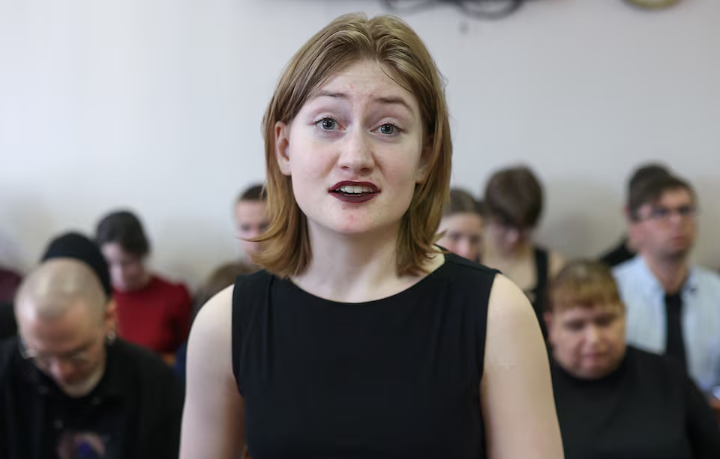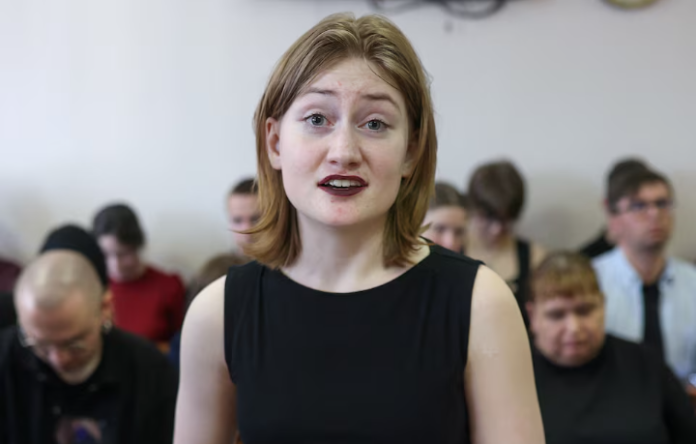In a story that’s stirring global outrage, 19-year-old Russian activist Darya Kozyreva has been sentenced to nearly three years in prison for openly opposing the ongoing war in Ukraine. Her crime? Sharing poetry and painting graffiti condemning Russia’s military actions.
On April 18, a court in St. Petersburg convicted Kozyreva of repeatedly “discrediting” the Russian armed forces, a charge she vehemently denied. According to Reuters, she had displayed a poster in a public square featuring lines of Ukrainian poetry and granted an interview to Sever.Realii, a Russian-language outlet tied to Radio Free Europe.
Kozyreva, once a medical student at St. Petersburg State University, has been vocal about her anti-war stance since she was just 17. In 2022, she painted the words “Murderers, you bombed it. Judases” on a sculpture symbolizing ties between St. Petersburg and Mariupol—a Ukrainian city devastated during Russia’s siege.
By early 2024, her activism had already attracted legal penalties. She was fined 30,000 rubles (about $370) for online posts critical of the war and was subsequently expelled from university. But she didn’t stop.
On the second anniversary of the war, Kozyreva taped a powerful verse by Ukrainian poet Taras Shevchenko to a statue of him in a city park. The poem, a symbol of resistance and hope, read:
“Oh bury me, then rise ye up / And break your heavy chains / And water with the tyrants’ blood / The freedom you have gained.”

That act led to her arrest and nearly a year of pre-trial detention. Though released to house arrest in February 2025, she has now been sentenced to two years and eight months in prison.
Standing in court, Kozyreva maintained her innocence: “I have no guilt. My conscience is clear,” she said. “Because the truth is never guilty.”
Human rights group Memorial, a Nobel Peace Prize laureate, lists her among at least 234 people currently imprisoned in Russia for anti-war activism. Her sentencing marks yet another example of the growing crackdown on dissent in Russia as the war in Ukraine drags into its third year.
As global pressure mounts, Kozyreva’s story is likely to become a rallying cry for activists, freedom fighters, and human rights defenders everywhere. Her words—and courage—will not be easily forgotten.



